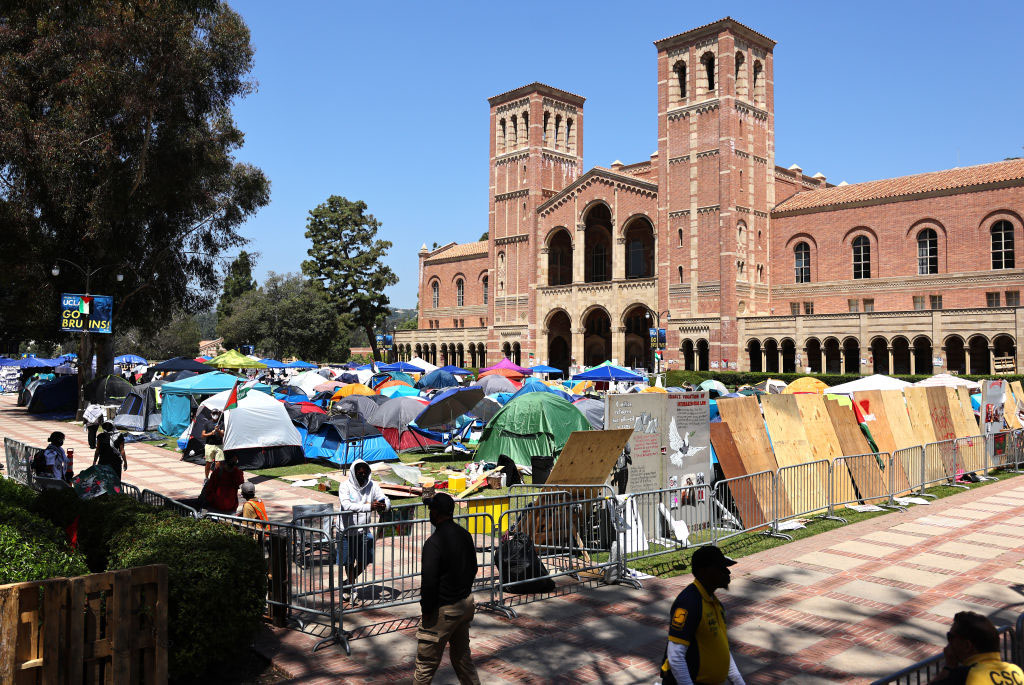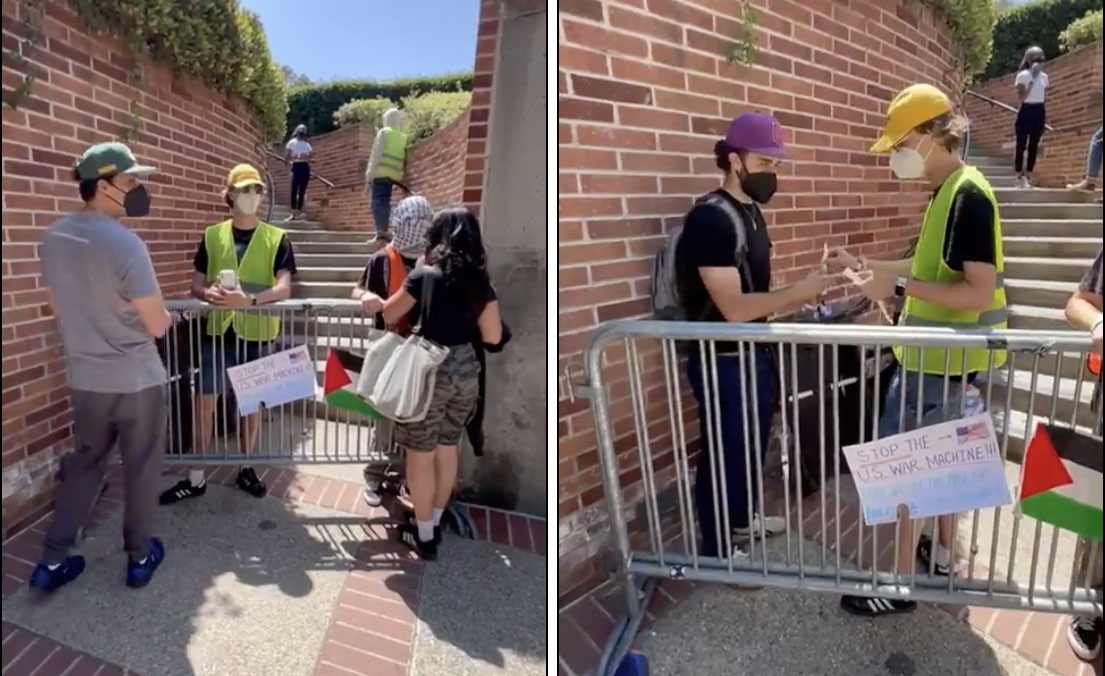 Rabbi Robbie Tombosky
Rabbi Robbie Tombosky You could be forgiven for thinking that Rabbi Robbie Tombosky lives in two different worlds. On weekdays, he works in high-powered finance and philanthropy; but on Shabbat he becomes the leader of the popular Beth Jacob Young Professionals (YP) minyan. He is quick to correct that impression. “My rabbi work and the work I do through my consulting and financial philanthropy actually are the exact same,” Tombosky, who is known as Rabbi Robbie quietly insisted. “I have a very narrow skillset – I can see the good in people. I can help them see the good in themselves. Then I can bring enough of those people together to do something fantastic together. I do that in philanthropy and I do that in our community, as a shul, as a rabbi.”
Since he landed at Beth Jacob, the largest Orthodox shul in the West, it has experienced significant growth. “I am very blessed,” the soft-spoken native of Pittsburgh, Pennsylvania said. “We had about 50 people in the community (in 2017); today it’s over 600.”
That “we” is instructive. The first “we” is Rebbetzin Chava, an author, filmmaker and mother of their three children, followed by Beth Jacob clergy and staff and, most importantly, the community itself. The formula was basic. “We empower people to show up fully in a place where they felt accepted, a place where they did not have to put on airs and project — the way we do everywhere else in our life — and to have an honest, authentic Jewish experience.”
“It’s really uncomplicated. Greet them at the door and make sure everybody gets a ‘hello’ because the very best things in life start with hello. When you say hello to someone, there’s a magic, a beginning.”
— Rabbi Robbie Tombosky
But how does the middle-aged Tombosky convey his message to young people? You may as well ask him to add one plus one. It’s really uncomplicated,” he said. “Greet them at the door and make sure everybody gets a ‘hello’ because the very best things in life start with hello. When you say hello to someone, there’s a magic, a beginning.”
After “hello,” he said “suspend yourself for a moment, ask somebody their story, get to know them, connect with them on a human level, and genuinely care about them. Do that, people will want to come back.” And “As you get to know them, you get to know the good in them. Possibly you can help them see the good in themselves that maybe they don’t see all the time.”
This was not a conscious formulation, he insisted. “It’s simply how my life became better through some individuals who refused to see anything but the best in me. When they did that, they brought out the best in me.” He credited several teachers and rabbis, an aunt, and his wife’s dad, who passed away. “They had an ability to see the good in you and to make you be the person they saw,” Tombosky said.
But perhaps his main role in the growth of Beth Jacob’s YP minyan has been that “I try to see in people who they really are, connect with them and be of service.”
Identifying the good in people “is not a great business practice,” the rabbi admitted, since people are pretty complicated. “But everybody has good inside.” He’s equally modest when discussing his businesses. “Right now I am blessed to run a company called giving GVNG,” a software company that allows individuals and companies to start a non-profit project in five minutes or less, to run a budget, and to be able to go do something meaningful in the world. “I have a consulting company, Sage Philanthropy Advisors, where we consult on helping design philanthropic work for companies and individuals. I also have Good Is Everywhere, the final piece of my engagement in the business world. It allows me to help companies and individuals find, articulate and amplify the good they have done in the world.”
Whether it is Shabbat or giving a night class, Tombosky engages the world the same way. “What I do in that world lends itself completely to what I do as a rabbi,” he says. “There really is not a transition.”
Years ago, he decided to play a scavenger hunt with God. Every day, wherever he is — he travels a lot for work, and meets many people — he knows why he is where he is. Unanswered, though, is: Why did God put him here? “There is only one of three possibilities why people would meet each other in this world,” he says. “I am here to help you, you are here to help me, or we are here to help someone else. Wherever I am, I meet the most fantastic people, I gather amazing stories and bring them back to my community.”
No stranger to tragedy, he nearly lost his life from sepsis three years ago, telling his story in the Journal: “In Our Family, We Say ‘I Love You.’” And shortly after the rabbi and Rebbetzin Chava married, his father, 50, was diagnosed with cancer. The elder Tombosky’s oncologist predicted he had maybe six months to a year to live. He fired the oncologist and said he’d find someone with a better answer. He kept trying new drugs and kept firing his oncologists and lived for 13 years more. “He was a real inspiration to me in the way he approached life,” said Rabbi Robbie. “His determination and grit. He is not a tough guy, the Rabbi Tombosky said. He learned resolve “by experiencing it, by seeing it in role models.”
Fast Takes with Rabbi Robbie Tombosky
Jewish Journal: What do you do to relax?
Rabbi Robbie: I walk about five miles every morning. I started doing that at the beginning of Covid. I love it. I let my mind wander. I don’t carry my phone on these walks.
J.J.: Do you have unfulfilled goals?
R.R.: So many. Raising so many kids, we haven’t gotten to travel much together. We are empty-nesters. I am looking to spend time with my wife, to travel. She would love to do Italy. She’s a romantic. I am pragmatic. She’ll handle travel plans.
J.J.: Your favorite Jewish food?
R.R.: Herring.























 More news and opinions than at a Shabbat dinner, right in your inbox.
More news and opinions than at a Shabbat dinner, right in your inbox.